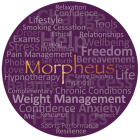Confidence
word definitions taken from Wikipedia
Confidence is generally described as a state of being certain either that a hypothesis or prediction is correct or that a chosen course of action is the best or most effective. Self-confidence is having confidence in oneself. Arrogance or hubris in this comparison, is having unmerited confidence—believing something or someone is capable or correct when they are not.
Overconfidence or presumptuousness is excessive belief in someone (or something) succeeding, without any regard for failure. Scientifically, a situation can only be judged after the aim has been achieved or not. Confidence can be a self-fulfilling prophecy as those without it may fail or not try because they lack it and those with it may succeed because they have it rather than because of an innate ability.
Self-confidence
Self-confidence does not necessarily imply ‘self-belief’ or a belief in one’s ability to succeed. For instance, one may be inept at a particular sport or activity, but remain ‘confident’ in one’s demeanour, simply because one does not place a great deal of emphasis on the outcome of the activity.
The key element to self-confidence is, therefore, an acceptance of the myriad consequences of a particular situation, whether they are good or bad. When one does not dwell on negative consequences one can be more ‘self-confident’ because one is worrying far less about failure or (more accurately) the disapproval of others following potential failure. One is then more likely to focus on the actual situation which means that enjoyment and success in that situation is also more probable.
If there is any ‘self-belief’ component it is simply a belief in one’s ability to tolerate whatever outcome may arise; a certainty that one will cope irrespective of what happens. Belief in one’s abilities to perform an activity comes through successful experience and may add to, or consolidate, a general sense of self-confidence.
Self-confidence also comes with knowledge. One will be more confident even if performing an activity never done after being taught. With each step successfully performed, belief in one’s abilities will increase.
How can Morpheus Associates help?
Hypnotherapy is used successfully to help people deal with a wide range of conditions. It is widely recognised now in its success with helping people with relaxation, and techniques are used to help people manage stress and anxiety associated with many other conditions. The client normally awakes feeling re energised and revitalised, with new hope and a positive frame of mind.
We offer an Initial 15-20 minute consultation which is free. At the end of this consultation you will be asked if you wish to proceed. At which point we will explain the fees per session, relevant to the treatment recommended and how many sessions are suggested as being required. We are located at Clarice House in Ipswich, The Heritage Centre Bury St Edmunds, Clarice House Colchester and Harley Street London. If a course of treatment is recommended, subsequent sessions are offered at a discounted price. Payments are accepted by cash or cheque with guarantee card only.
Please feel free to read our recent testimonials (link) from clients who have had this condition treated by Morpheus Associates
If you are comfortable with the idea, please call us to book an Initial 15-20 minute consultation, at which time you can decide if you feel the treatment offered would possibly help. Call Debbie Crooks on 07840-694743
Contact me today
Please fill out this form and I will get in touch with you shortly.

